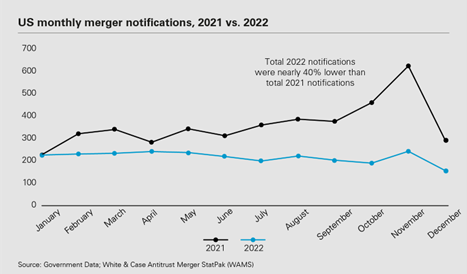World Competition, Volume 46, Issue 3, 2023
We are happy to inform you that the latest issue of the journal is now available and includes the following contributions:
Michael J. Frese, Big Data Requests: The Commission’s Powers to Collect Documents in Investigations Under Articles 101 and 102 TFEU
Access to company documents is critical for European Commission (‘Commission’) investigations, but complying with document requests can be a daunting task for a company. The Commission’s powers are expansive but not unlimited. Understanding the limits of mandatory document productions can help manage enforcement risk. This article discusses the Commission’s powers to collect and use company documents in the context of Articles 101 and 102 of the Treaty on the Functioning of the European Union (TFEU), taking into account recent EU case law.
Khaled S. Al-Rashidi, The Decriminalization of Cartel Activity in Kuwait: A Regulatory Framework
The Kuwaiti policymaker has never overlooked the protection of market competition. Anticompetitive practices have always been a concern in Kuwait; from the Kuwaiti Constitution 1962, which allows a legal monopoly for a certain time, and the Commercial Law Act 68/1980, to the Competition Protection Acts (CPA) of 2007 and 2020. However, the legislative responses to anticompetitive behaviours in Kuwait have varied, with criminal prohibition being historically dominant. Recently, with the introduction of the CPA 2020, Kuwait has decriminalized cartel activity. Although it may have been expected that the criminal nature of cartel activity should have been maintained, the major shift in Kuwait was contrary to the global trend towards criminalization. Cartel activity is now being dealt with within a regulatory framework, with only administrative sanctions. This paper suggests that the decriminalization in Kuwait weakens the argument that the global trend towards criminalizing cartel activity has always been driven by a top-down process. This paper has three aims: the first is to explore this inadvertently ‘neglected’ research area in Kuwait; the second is to discuss why cartel activity has been decriminalized, with a focus on the problem of ‘moral ambiguity’ as an explanation; and the third is to argue for the re-criminalization of cartel activity.
Ciara Denihan, Collective or Collusive Agreements? An Examination of the Position of Solo Self-Employed Persons under Article 101 TFEU
The world of work, and indeed the Treaty itself, has changed considerably since the Court first examined the issue of competition law and collective bargaining agreements in the Albany decision. Exempting only those categorised as employees from the scope of Article 101 is no longer adequate to address the imbalance of bargaining power recognised by the Court. Although recognition of the ‘false self-employed’ in FNV went some way towards acknowledging the atypical position of some workers, confusion also stemmed from this intermediary category, which led to inconsistent approaches across Member States. The combination of the COVID-19 pandemic, the increased digitisation of the world of work, and a prominent decision at international level finally prompted the Commission to take action to remedy the uncertainty, by introducing Guidelines on the application of Article 101 to collective agreements regarding the working conditions of solo self-employed persons. The purpose of this paper is thus to critically analyse the likely effectiveness of these Guidelines, focusing on their substance and form respectively, while also exploring potential avenues for the Commission and the Court to provide increased legal certainty for solo self-employed persons seeking to collectively bargain, against the backdrop of an increasingly social understanding of the Treaties.
Sayyeda Fatima, Role of Appellate Forums in Competition Cases of Pakistan: Challenges and Way Forward
Judicial forums are the means to achieve the most pivotal goal of maintaining check and balance according to the theory of separation of powers. The judiciary has the power to supervise the legislative and executive branches of the government. The judgments by the courts/appellate forums are vital as they prevent attempts by the competition authorities to abuse their powers when prosecuting wrongdoers and force the competition authorities to conduct more rigorous investigations to prevent legal challenges. In Pakistan certain challenges need to be addressed in order to strengthen the implementation of competition law. There is a need to establish a jurisprudence of competition law. The judgments of courts/appellate forums can set useful precedents. However, the dysfunctional status of the appeal court since the establishment of the Competition Commission of Pakistan (CCP), judges’ lack of experience in the area of competition law and certain other aspects need to be focused on in order to firm up competition law in Pakistan.
This article intends to review the different forums of appeal available in Pakistan competition regime, eligibility criteria for filing an appeal, procedures of appellate forums, rules governing the procedure and powers of appellate forums. It aims to discuss the importance of judicial protection, the enforcement challenges of Pakistan competition jurisdiction and the suggestions for improvement.






